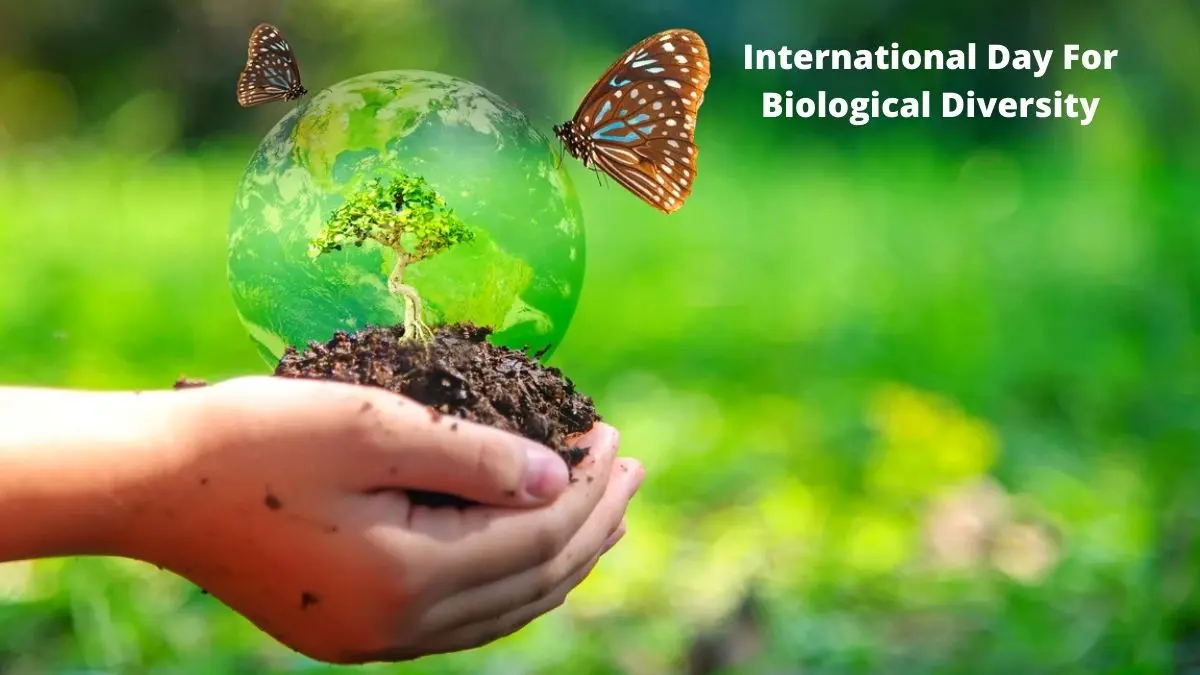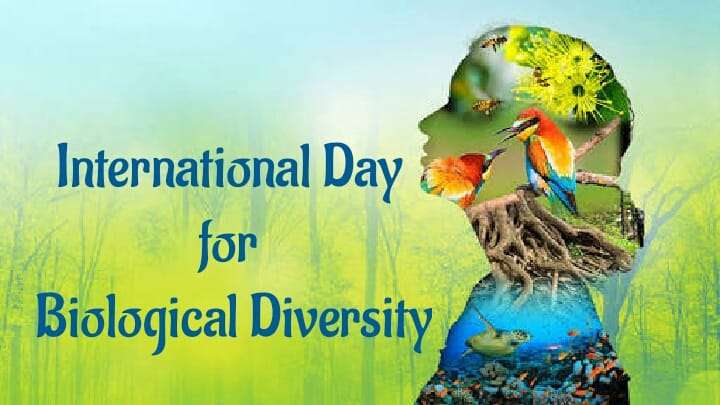By Maria Papagiannopoulou,
The International Day for Biological Diversity, often known as World Biodiversity Day, is a global holiday established by the UN to raise awareness of biodiversity-related concerns. Currently, May 22 is the date.
The Sustainable Development Goals of the UN Post-2015 Development Agenda cover the International Day for Biological Diversity. The topic of biodiversity is addressed by parties involved in sustainable agriculture, desertification, land degradation and drought, water and sanitation, health and sustainable development, energy, science, technology, and innovation, knowledge sharing, and capacity building, urban resilience and adaptation, sustainable transport, climate change and disaster risk reduction, oceans and seas, forests, and vulnerable groups such as children and the elderly.
The Rio+20 result document The World We Want: A Future for All recognized the crucial role of biodiversity in sustainable development.
It was held on December 29 to commemorate the day the Convention on Biological Diversity came into effect from the time it was established by the UN General Assembly’s Second Committee in 1993 until 2000. The Convention was adopted on May 22, 1992, at the Rio de Janeiro Earth Summit. The date was changed to December 20, 2000, in order to avoid the numerous other holidays that fall in late December.
Biological diversity is often understood in terms of the wide variety of plants, animals, and microorganisms, but it also includes genetic differences within each species — for example, between varieties of crops and breeds of livestock — and the variety of ecosystems (lakes, forest, deserts, agricultural landscapes) that host multiple kinds of interactions among their members (humans, plants, animals). Resources that support biological diversity are the foundations upon which we erect civilizations. 3 billion individuals get 20% of their animal protein from fish. The human diet contains more than 80% of plants. Up to 80% of rural residents in underdeveloped nations depend on conventional plant-based medications for basic medical treatment.
However, the extinction of species threatens everyone, including our health.
It has been established that zoonoses — diseases spread from animals to humans — could increase if biodiversity were to decline. On the other hand, if biodiversity were to remain intact, it would provide us with excellent weapons to combat pandemics like those brought on by coronaviruses.

Even though the value of biological diversity as a global resource for future generations is becoming increasingly recognized, certain human activities are drastically reducing the number of species. The UN chose to observe the International Day for Biological Diversity annually because of the significance of raising public awareness and education about this issue.
This global loss of biodiversity has been recognized and brought to light by numerous scientists. Steve Boyes, a National Geographic Explorer, has made it his life’s mission to promote conservation in Africa’s Okavango Delta. According to Boyes, “Wilderness can only be destroyed; it cannot be repaired or recreated.” About to go is our final glance into prehistory. Increased emphasis has been placed on measuring biodiversity as well as holding governments accountable for aiding in its conservation thanks to researchers like Boyes.
What concrete actions have been taken to stop biodiversity loss, then?
The CBD is a globally enforceable agreement with the goal of raising public awareness of actions that endanger species variety. Additionally, the Convention offers a framework within which participating nations can develop their strategies to halt species loss. Its three main objectives are:
- keeping biological diversity protected
- the sustainable utilization of biological diversity’s components
- fair and equitable distribution of benefits from the use of genetic resources.
The CBD achieved significant milestones that have had a profound impact on all countries in the world. The 2018 International Day for Biological Diversity’s keynote speaker, Dr. Cristiana Paşca Palmer, who is also the CBD Executive Secretary, said it best: “On the International Day for Biological Diversity, we recognized the tremendous progress made by parties and partners. There is much to rejoice about. Today, significant portions of the globe are being preserved as protected areas. Significant advancements in governance frameworks and methods for managing critical natural resources through sustainable use have been made. It is now well acknowledged how important biodiversity is to society, our social and economic requirements, as well as our own health and wellbeing”.
The fight to preserve biodiversity is far from ending, despite these and other initiatives. Recent studies have found scant indications of progress. The CBD is still working to implement UN-approved plans all around the world. The UN Strategic Plan for Biodiversity 2011-2020 (CBD 2010c) was adopted in 2010. This strategy, which designates this as the “Decade on Biodiversity,” aims to give the UN and its allies a foundation upon which to carry out initiatives that aid nations in managing biodiversity. According to the CBD’s website, by the year 2050, it wants all people to live in a place where “biodiversity is valued, conserved, restored, and wisely used, maintaining ecosystem services, sustaining a healthy planet, and delivering benefits essential for all people.”
Even while there is still much to be done, it is critical to have optimism that the UN’s goal of “a world living in harmony with nature” will actually be accomplished.
References
- Biological diversity day. un.org. Available here
- International Day for Biological Diversity. genevaenvironmentnetwork.org. Available here




